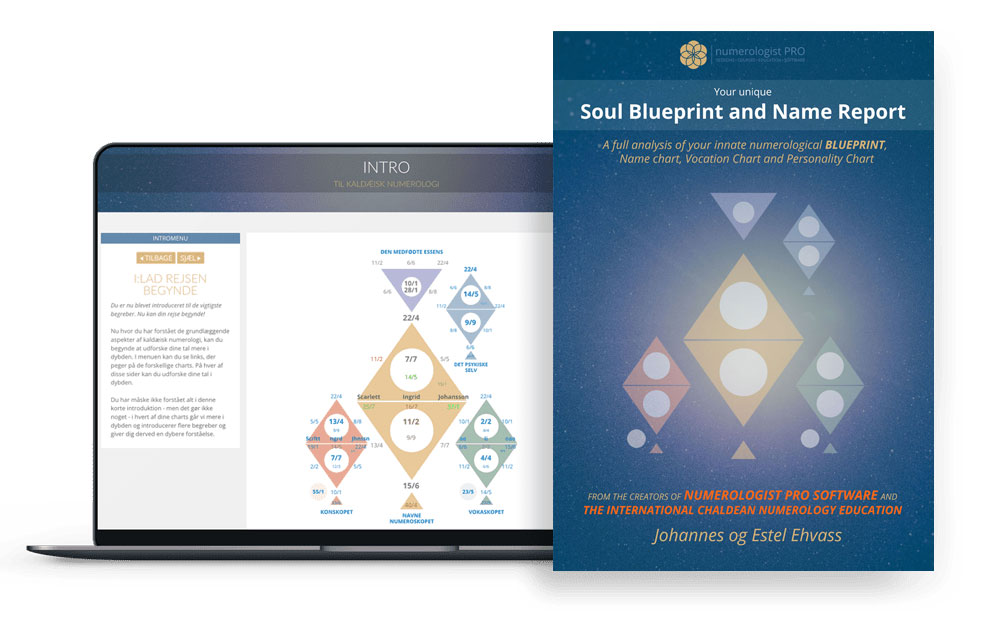Universities and Scholastic Pursuits: Academic Astrology

Johannes Ehvass
Welcome, dear reader! Together, we embark on a captivating journey into astrology, a timeless art and science that has accompanied humanity since its earliest days. Each astrological discovery not only mirrors the era and culture it emerged from but also feels like a celestial gift, as if the universe is directly speaking to us. Through these articles, I share with you the profound journey of how astrology has grown and evolved alongside us. Let's explore this cosmic connection that has, for millennia, enriched our understanding of ourselves and the universe around us.

The medieval period was a dynamic time for intellectual pursuits, especially within the emerging universities.
These centers of learning became key venues for the study, practice, and debate of astrology, integrating it within the academic fabric.
Through the curriculum, influential astrologers, and theological dialogues, astrology etched a definitive place in scholastic circles.
This article embarks on an exploration of academic astrology during the Middle Ages, shedding light on its nuances and impacts.
Astrology in Medieval Curriculum: The Quadrivium
Central to understanding the position of astrology in medieval academic circles is the concept of the quadrivium, the four-fold way of mathematical learning.
The Quadrivium: A Pillar of Medieval Education
The medieval educational system revolved around the liberal arts, divided into the trivium (grammar, logic, and rhetoric) and the quadrivium (arithmetic, geometry, music, and astronomy). While the trivium provided foundational skills, the quadrivium delved into more specialized knowledge domains, with astronomy often intertwined with astrology.
Astrology and Astronomy: Two Sides of the Same Coin
In medieval scholasticism, the line between astrology and astronomy was blurry. Astronomy, as the study of celestial bodies’ movements, provided the empirical base upon which astrological predictions and interpretations were made. Universities, therefore, became pivotal spaces where astrological theories were tested, refined, and debated against astronomical observations.
The Curriculum and its Evolution
Initially, the study of the stars in universities focused more on the computational aspects, but as the Middle Ages progressed, astrological interpretations began to find their way into the curriculum. Texts from the Islamic world, translated and assimilated, enriched the European understanding, adding depth and nuance to astrological studies. By the 13th and 14th centuries, universities like Salerno, Bologna, and Paris offered comprehensive courses that merged the mathematical rigor of astronomy with the interpretative layers of astrology.
Prominent Medieval Astrologers and Scholars
The scholastic world of the Middle Ages boasted a pantheon of intellectuals who, in various capacities, engaged with and contributed to astrological thought.
Albertus Magnus: Bridging Natural Philosophy and Astrology
Albertus Magnus, a Dominican friar, was instrumental in assimilating Aristotelian thought into Christian theology. He viewed the cosmos as an interconnected entity, where celestial events held significance for the terrestrial realm. His works laid the groundwork for future scholars, merging natural philosophy with astrological implications.
Roger Bacon: The Experimentalist
Considered a forerunner of modern scientific methodology, Roger Bacon held that empirical observation was key to understanding the world. While he was cautious about astrology’s predictive aspects, he acknowledged the influence of celestial bodies on the natural world, emphasizing observation and computation in astrological practices.
Guido Bonatti: The Court Astrologer
One of the most renowned astrologers of the 13th century, Guido Bonatti served as an advisor to nobles and warlords, utilizing astrological insights for tactical and strategic decisions. His treatise, “Liber Astronomiae,” became a seminal text, reflecting the synthesis of various astrological traditions and practices of the time.
Theological Implications and Debates in Academic Circles
As astrology became entrenched in academic life, it inevitably stirred theological debates, reflecting the dynamic interplay between faith and reason in the medieval era.
Astrology and Divine Providence
A core debate revolved around reconciling astrological determinism with the Christian belief in Divine Providence. If the stars could influence human affairs, where did that leave God’s will? Scholars like Thomas Aquinas wrestled with this, concluding that while stars might influence earthly events, Divine Providence remained supreme, guiding the broader cosmic order.
Morality and Astrological Practice
The moral dimensions of astrological practice were hotly debated. Could one ethically profit from astrological consultations? Was it morally sound to base decisions on astrological forecasts? Universities became arenas where these ethical dilemmas were dissected, often leading to more refined astrological practices that aligned with Christian ethics.
Universality vs. Individual Destiny
A foundational debate was whether astrology spoke to universal truths or individual destinies. While the macrocosmic influences of celestial bodies were largely accepted, the microcosmic implications, such as individual horoscopes, were more contentious. Scholars oscillated between viewing astrology as a tool to understand broader cosmic rhythms or as a means to decipher individual life paths.
In conclusion, the Middle Ages saw universities emerge as pivotal hubs for astrological learning, research, and debate. Through curriculum, scholars, and theological dialogues, astrology found a nuanced and multifaceted place in the scholastic world, reflecting the era’s intellectual vibrancy. Bridging observation and belief, reason and faith, academic astrology of the medieval period paved the way for the more specialized and refined astrological practices of the Renaissance and beyond.
Notable Medieval Universities with Astrology Studies
Here are some of the major medieval universities and academies known for their astrological studies:
University of Bologna
Founded in 1088, the University of Bologna in Italy is widely regarded as the oldest university in continuous operation. Astrology was taught here as part of the quadrivium, and the university had a strong influence on the development of Renaissance astrology.
University of Salamanca
Established in the early 13th century in Spain, the University of Salamanca became one of the most important centers for education in Europe. It was known for its faculties of liberal arts and theology, which included the study of astrology.
University of Paris (Sorbonne)
The University of Paris, later known as the Sorbonne, was founded in the mid-12th century. It had a significant astrological tradition, with notable scholars such as John of Sacrobosco, who wrote “Tractatus de Sphaera,” an influential work on the heavens.
University of Oxford
Oxford University in England had a rich tradition of astronomical and astrological study, which was a fundamental part of the medieval curriculum. Notable figures such as Roger Bacon, who studied and taught at Oxford, wrote extensively on astrology.
University of Padua
The University of Padua in Italy, founded in 1222, was a leading center for the study of medicine and astrology. It is known for teaching scholars such as Pietro d’Abano, an influential figure in medical astrology.
University of Prague
The University of Prague, now Charles University, established in 1348, was the first university in Central Europe and had a strong tradition in the sciences, including astrology.
Present Day Continuation
Today, none of these universities have faculties dedicated to astrology as it was understood in the medieval period. Modern astrology is not recognized as a science and is generally not included in academic curricula at major universities. However, some institutions may offer courses in the history of astrology as part of their history of science programs. Additionally, the field of cultural astronomy, which includes the study of historical astrological practices, is a legitimate area of academic inquiry. Institutions such as the Warburg Institute at the University of London have been known for research in this field.
Astrology, as practiced in the medieval period, was closely aligned with astronomy and was considered a scholarly and scientific pursuit. The faculties that taught astrology were often part of larger departments of mathematics or philosophy, reflecting the integrated approach to knowledge during that time. The decline of astrology in academic circles came with the advent of the scientific revolution and the development of more empirical methods of studying the cosmos.

Johannes & Estel: Renowned authorities in Numerology, Astrology, and the esoteric arts. As the founders of Scandinavia's premier Numerology school, we're delighted to share our insights through this curated series on astrology. Dive in and discover the stars.
The Worlds Most Advanced Numerology Report

Your birthdate reveals your unique life purpose, potentials, talents, weaknesses, and karma in this life.
Your names show what you attract into your life regarding your career, relationships, happiness, money, and success.
GET THE REPORT HERE
Introduction to Astrology
The history of Astrology
Moving beyond deterministic astrology
Foundation of Astrology: Planets, Signs and Houses
Astrology and the Holographic Universe
The Holographic Universe
The Human Psyche as a Mirror to The Solar System
The Human Body as a Mirror to The Star Signs
Astrology Background
Egyptian Astrology
Mayan Astrology
Chinese Astrology
Indian Astrology - Jyotish
Celtic Astrology
Tibetan Astrology
Mesopotamian Astrology
Early Mesopotamian Astrology: The Dawn of Celestial Divination
Enuma Anu Enlil: The Epicenter of Babylonian Celestial Omen Interpretation
Babylonian and Chaldean Astrology
Babylonian and Chaldean Astrology
Chaldean influence and evolution
Chaldean Wisdom: Safeguarding and Transmitting Astrological Knowledge
Hellenistic Astrology
Hellenistic Astrology background
Claudius Ptolemy and Tetrabiblos
Vettius Valens
Dorotheus of Sidon
Persian Astrology
Persian Astrology background
Sassanian Astrology
Late Antiquity and The Transition Period
Late Antiquity and The Transition Period
Hellenistic to Islamic Transition: The Torchbearers of Astrological Wisdom
Islamic Golden Age
Arabian Astrology Background
Arabian Astrology Contributions
Medieval Astrology
Introduction: The Medieval Cosmos
Monastic Preservers: Astrological Knowledge in the Dark Ages
Astrology in Medieval Medicine
Kings, Queens, and Constellations: Astrology in the Medieval Court
The Church and the Stars: A Contentious Relationship
Universities and Scholastic Pursuits: Academic Astrology
Astronomy & Astrology: Tools of the Trade
Medieval Astrological Houses and the Synthesis of Traditions
Transition to the Renaissance: Humanism and the Celestial Arts
Reflections: Medieval Astrology's Echoes in Modern Practice
Astrological Art of the Middle Ages
Famous Medieval Astrologers
Medieval Astrological Texts
Renaissance Astrology
Renaissance Humanism and Astrology
Scientific Advancements and Astrology
The Social Fabric: Astrology in Everyday Renaissance Life
Court Astrologers of the Renaissance
Controversies and Conflicts: Astrology Under Scrutiny
Renaissance Texts and Authors: Continuation of a Tradition
Astrology and Art: Celestial Imagery in the Renaissance
Renaissance Astrological Practices: Evolutions and Innovations
End of the Renaissance: The Gradual Decline of Astrological Influence
Renaissance Astrology's Echo in the Modern World
Enlightenment Astrology
Introduction: The Enlightenment and Astrology
Challenging the Stars: Astrology's Critics during the Enlightenment
Astrology and the New World
Astrology in the 19th Century
The Dawn of Psychological Astrology
Astrology in the 20th Century: A Modern Renaissance
Astrological Associations and Schools
Modern Controversies and Astrology
Astrology and Popular Culture
Astrology and Technology
Current Trends and Future Directions in Astrology
Conclusion: Reflecting on Astrology's Evolution
The Planet Significances
The Sun in Astrology
The Moon in Astrology
Mercury in Astrology
Venus in Astrology
Mars in Astrology
Jupiter in Astrology
Saturn in Astrology
Uranus in Astrology
Neptune in Astrology
Pluto in Astrology
Chiron in Astrology
Black Moon Lilith in Astrology
Pars Fortuna in Astrology
Ceres in Astrology
Houses in Astrology
Introduction to Astrological Houses
The Angular Houses
The Succedent Houses
The Cadent Houses
The 1st House
The 2nd House
The 3rd House
The 4th House
The 5th House
The 6th House
The 7th House
The 8th House
The 9th House
The 10th House
The 11th House
The 12th House
Interaction Between Houses
Derived Houses, House Rulers, and Interceptions
Conclusion: Synthesizing House Knowledge
All Materials © 2023 & 2024 Numerologist PRO
Terms of Service: Information provided by Numerologist PRO and/or from this web site is not intended as advice (medical, psychological, financial or other), nor is it intended to replace your work with a qualified professional (medical or otherwise). You should maintain your relationship with your providers and consider the services of this site as informational only. Any information, stories, examples, or testimonials presented on this website do not constitute a warranty, guarantee, or prediction regarding the outcome of an individual. This web site is a sharing of knowledge and information of numerology/energy work based on the experiences of Numerologist PRO. You are encouraged to make your own decisions based on your own research and inner guidance. By booking and receiving services, you agree to fully release and hold harmless Numerologist PRO and all it's affiliated numerologists from and against any liability or claim that may arise out of or in connection with their service(s).
Numerologist PRO © 2021

CONTACT
numerologist@numerologistpro.com
LIKE US, and get free numerology tools, info about your personal numbers, best business dates of the year - and more!
YOUR FREE NUMEROSCOPE CHART
Enter your name and email below and get access to our free online numerology chart tool.